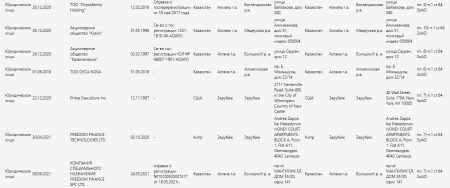According to Vedomosti, Abramovich shifted money “from one pocket to another”, the income tax of the governor and his team is a significant source of the autonomous okrug’s budget, an official from one of the federal agencies explains: “The Chukotka budget needed funds, so I paid it.” According to the Budget Code, the declaration payment is credited to the budget of the regions. Abramovich and his deputies pay income tax in Chukotka because they are registered there. The payment of all Chukotka declarants under the tax amnesty (564.9 million rubles) is almost half of Abramovich’s annual contribution to the district budget – according to sources close to the governor, this is about 1 billion rubles a year.
formally, the need to legalize the income of the 90s, which accounted for the main period of tax crimes, has already disappeared due to the expiration of the statute of limitations.
The citizen himself determined how much he would “whitewash” income received before January 1, 2006. It was proposed to pay a declaration fee of 13% of this legalized amount (relatively speaking, the paid 13 rubles legalize 100 rubles of income). A receipt from the bank will now become an indulgence for the declared amount of income for those who have benefited from the amnesty. Those who managed to pay are released from the claims of fiscal and law enforcement agencies for legalized amounts.
It is noteworthy that the cash income of the inhabitants of Chukotka is higher than the average Russian income by about 4-10%. In August-October 2007 (latest data), the monetary income of an average Chukotka resident amounted to 13,059-14,456 rubles. But the subsistence level in the district reached 8,870 rubles in the third quarter. – 2.7 times higher than the national average.
The Ministry of Finance reminds that from the very beginning no one planned how much they could collect under the amnesty. “This was done not for the sake of the budget, but for those who want to live in good conscience. We are not even going to count how many people have paid declaration payments,” RIA Novosti was told in the ministry.
Fees could be more, experts say. “In my opinion, 90% of income from which taxes were not paid was received from the beginning of the 90s to 2001,” Irina Muchichka, head of the taxation and judicial protection department at Business Systems Development, told RIA Novosti.
Meanwhile, the legislation of the Russian Federation actually no longer provides grounds for bringing to responsibility the persistent non-payers of the 90s. It’s all about the statute of limitations and the capabilities of the tax authorities.

